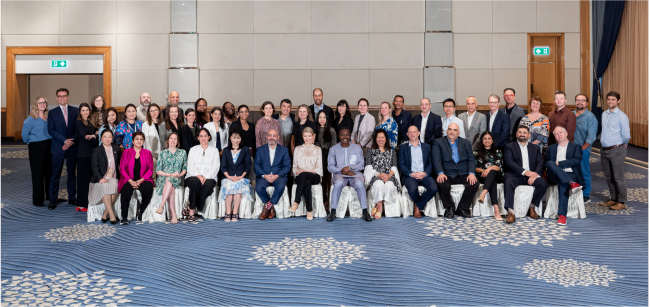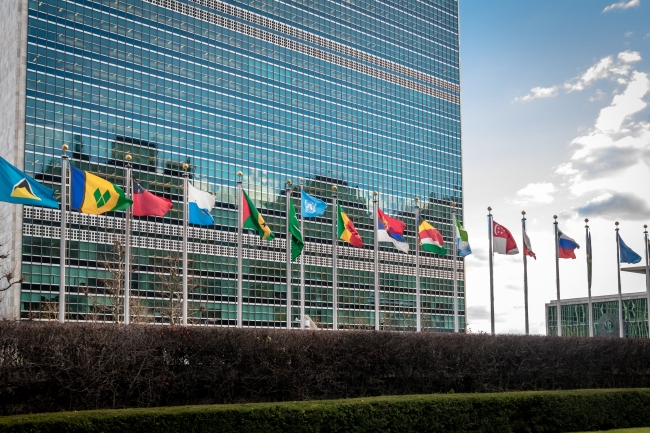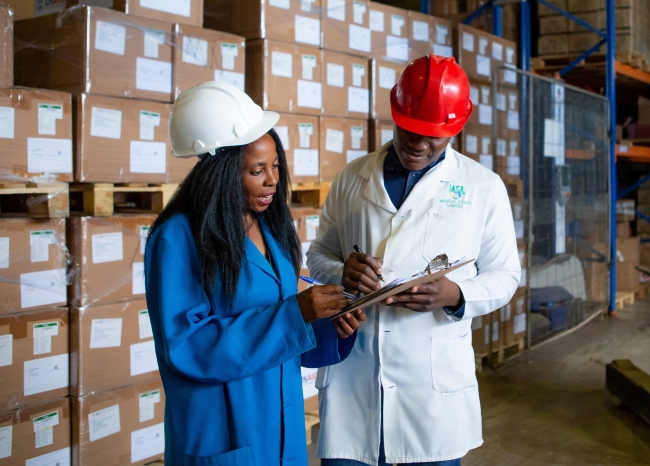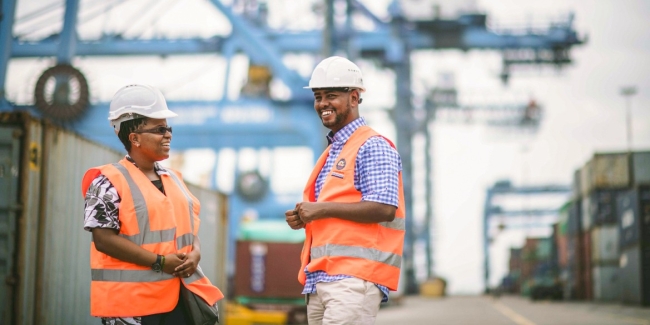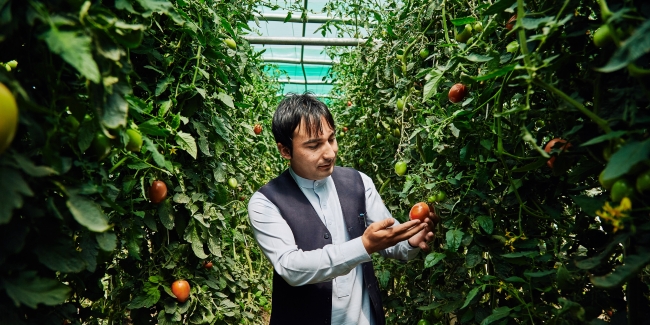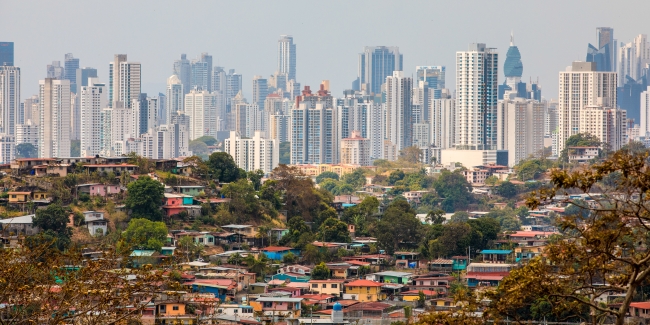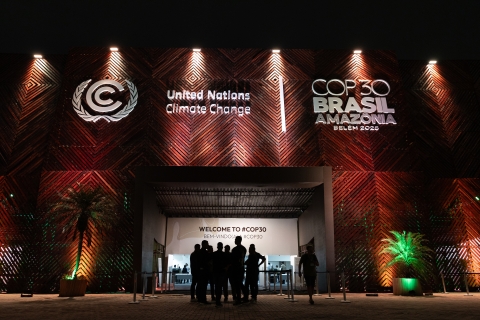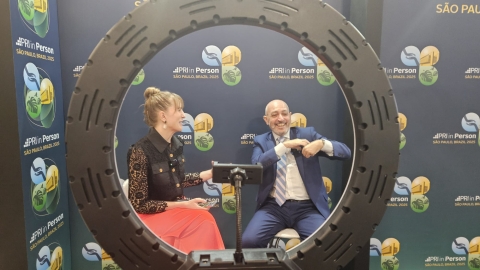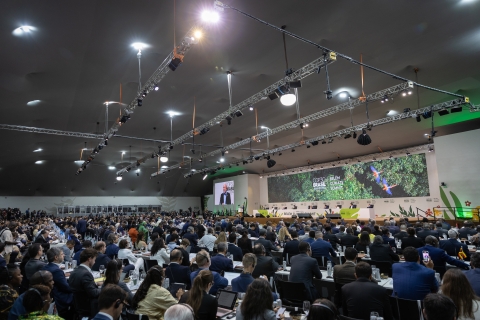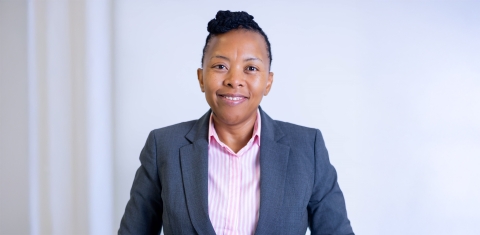Investing in Local Solutions to Build Climate Resilience from the Ground Up in Africa
18 JULY, 2025

Resilience is needed now more than ever. In a multipolar world marked by uncertainty, communities, businesses, and governments must be able to withstand and recover from shocks such as climate disasters, economic downturns and systemic disruptions. Africa, in particular, faces an urgent need to strengthen climate resilience across every layer of its economy and society.
Small and medium-sized enterprises (SMEs) are the backbone of the continent. Representing 80% of employment and contributing more than half of Africa’s GDP, SMEs are central to inclusive growth. Yet many remain precariously close to financial instability. Compounding this vulnerability, the continent loses an estimated 2-5% of its GDP annually due to the intensifying impacts of climate change—heatwaves, floods, droughts, and cyclones.
At the same time, many African countries face a widening gap in financing sustainable development. Average tax revenues amount to just 16% of GDP, which is well below global norms, and official development assistance is in decline. As a result, governments often lack the fiscal space to respond to immediate climate risks while also pursuing long-term development priorities. Too often, they face impossible trade-offs—responding to climate emergencies or addressing the structural drivers of vulnerability, such as weak infrastructure, degraded ecosystems, economic instability, and inequality.
This leads to a financial system that frequently overlooks the transformative power of smaller businesses in building resilience and delivering climate solutions. Many financiers still perceive SMEs as high-risk, citing limited collateral, short operating histories, informal business models, and insufficient climate data to assess viability. Meanwhile, most climate finance instruments remain structured for large-scale, capital-intensive projects—leaving SMEs to navigate high transaction costs, complex application processes, and limited technical support. As a result, there is a chronic shortage of investment-ready, bankable climate projects at the SME level.
But this narrative is not only incomplete, it is increasingly being disproven.
We have seen firsthand the ingenuity and resilience of African SMEs in addressing the climate challenges facing their markets and communities. In Kenya, solar energy companies have the potential to deliver attractive investment returns, with internal rates of return (IRR) around 15-20%. In Ghana, innovative electronic waste management businesses are fostering circular economy approaches to reduce the 129,000 tons of e-waste annually, while offering similar potential returns to investors. These are just a couple examples of a growing pipeline of promising, high-impact enterprises, as surfaced through country-led SDG Investor Maps.
Such examples challenge the assumption that local enterprises cannot deliver both climate impact and financial returns. UNDP is working to make such solutions the rule, not the exception. Building climate resilience requires more than isolated projects. It demands a systemic shift in how financial systems integrate climate considerations across all development finance.
To support this transformation, UNDP is bridging the climate finance gap for SMEs through initiatives such as SDG Pipeline Builder x PISTA: Scaling African SMEs in Climate Resilience. By sourcing and supporting promising enterprises and connecting them with capital, we are scaling local innovation into investable climate solutions that deliver results for people and planet.
This shift is already underway. Building on national pilots that enabled SME investments in sectors like health care and agritech in Nigeria and early results from the Platform for Investment Support and Technical Assistance (PISTA), UNDP is now scaling its SDG Pipeline Builder, with support from the Governments of Italy and Spain. The initiative aims to mobilize investment into SMEs driving adaptation and mitigation, particularly in Ghana, Kenya, Malawi, the Republic of the Congo, Mauritania, and Senegal. By strengthening business readiness, aligning with national strategies, brokering partnerships, and building institutional capacity, UNDP is helping turn climate ambition into investable action.
Mobilizing investment at scale requires alignment of financial systems with sustainable development priorities. This need for systemic alignment was underscored at the recent Fourth International Conference on Financing for Development (FFD4) held in Sevilla, Spain, where the message was clear: progress for sustainable development must be rooted in partnerships, across public and private sectors, global and local levels. What resonated most was the shared determination to reimagine financial systems so that they serve climate goals and real economic needs.
At UNDP’s Africa Sustainable Finance Hub and Rome Centre for Climate and Energy, we are combining our expertise to help implement the Compromiso de Sevilla, the political declaration adopted at FFD4, and the Sevilla Platform for Action. From the Integrated National Financing Framework Facility’s whole-of-government tools to PISTA and Climate Promise, UNDP is advancing system-wide solutions to deliver investable, scalable climate resilience for African SMEs.
Learn more about our SDG Pipeline Builder x PISTA
Scaling African SMEs in Climate Resilience initiative and related work of how UNDP supports FFD4 Compromiso de Sevilla implementation via the UNDP Sustainable Finance Hub website and LinkedIn.

